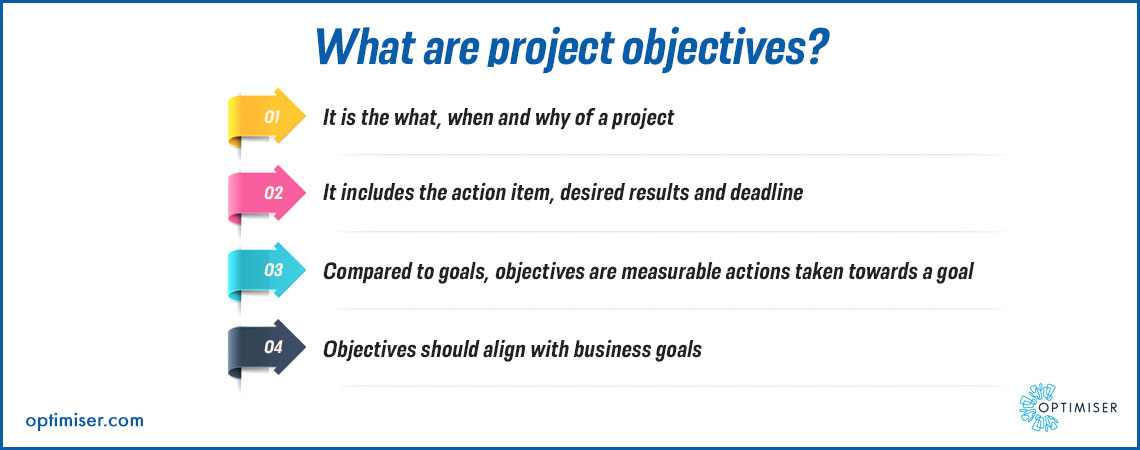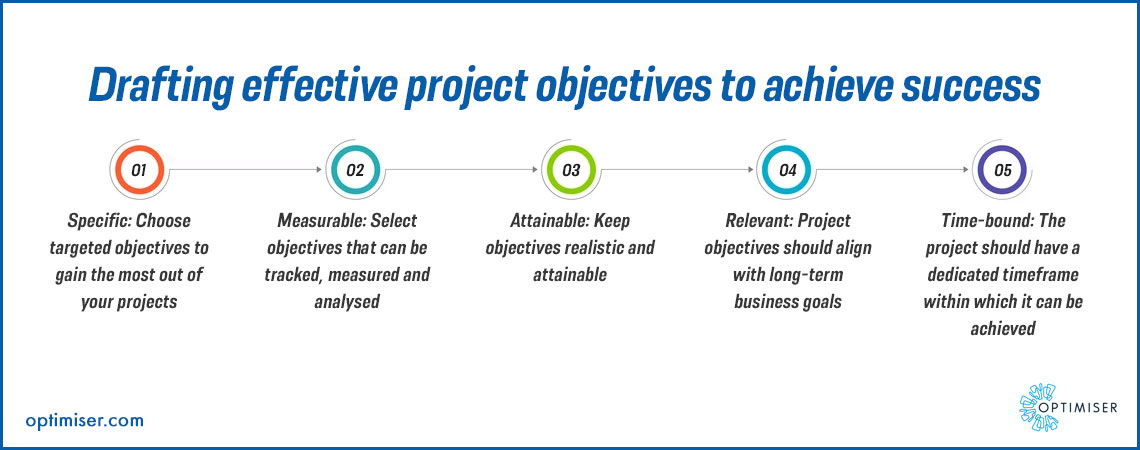
Project Management
How to draft effective project objectives to define and achieve success?
Every project needs a manager who has objectives. For example, planning a birthday party without the celebrant or a venue or cake. It is basically planning the most boring birthday party for all who will be attending.
Without goals or objectives, you cannot run a project seamlessly if you do not know where to steer the ship. Goals and objectives should not be the afterthoughts. While you may read this in every other blog, it is common for project managers to ignore setting objectives. The best tool for managing projects allows businesses to set their targets and achieve them.
While it may sound like a great idea to run ahead without objectives. In the long run, it ends up harming the quality of the project and even costs the organisation time and resources.
The first step that a lot of managers get confused about: How to write a project objective?
Even the most experienced project managers struggle with setting objectives to ensure that there is a solid foundation for their projects.
First off, let's talk about what are project objectives!
The what (action items), the why (desired result) and the when (deadline) of every project is known as project objective. It emphasises what the project is, what you hope to gain from it and what is the deadline for the project.

Before we get into that, it is very crucial to know that there is a difference between a project objective and a goal.
These terms are often used interchangeably but let's remove the confusion surrounding them!
Goals are long-term outcomes that you expect from your projects. Whereas, objectives are measurable action that is taken towards achieving a goal. In short, you make objectives that align with your business goals to boost your growth.
For example, Your goal is to improve the user experience on your website, therefore to achieve that goal you set up the objective to introduce progressive profiling to keep the visitors engaged and increase traffic on your web pages.
How to draft effective project objectives to define and achieve success?
There is a simple way for writing your project objective. If you are familiar with project management, you would have heard the term SMART objective before. It is a criterion for developing objectives to ensure that they are reasonable, scalable and flexible.
SMART objectives include the following:
Specific: The objective should be targeted for maximum results. If it is focusing on too many issues at once, it will not address any issues by the end of the project.
Measurable: Objectives should be measurable to track the project's progress and success.
Attainable: Keep your objective realistic. Ensure that you have the resources available to achieve this target and use your past experiences to understand how to make the objective attainable.
Relevant: Objectives should align with your business goals, as mentioned before. It will bring your closer to defined success.
Time Bound: This refers to a deadline. Your projects will need a defined timeline. Without a timeline, your projects will drain resources and will contribute to nothing.

Also Read: 8 KPI Metrics Project Managers Cannot Ignore to be Successful
SMART Objective example
"By the end of Q2, we will increase the retention rate by 5% by adjusting pricing for returning customers and starting a new customer loyalty program."
How does this project objective come under the SMART practice?
Because it is specific. It focuses on one issue which is customer retention. This will be solved by adjusting pricing for returning customers and creating a loyalty program. Customer retention rate can be measured with the means of CRM software like Optimiser to see which strategies are working in the business's favour, meaning the set objective is measurable.
Optimiser's Project Management Suite to achieve every business objective
Under a single subscription, project managers can handle multiple projects with Optimiser's project management software. By creating a streamlined workflow, individuals will be able to allocate resources consciously. Monitor the output with performance reports of the team as well as the project to deliver work of the best quality. Coming with CRM integration, Optimiser's project management suite is flexible and scalable.
Summary
Without a project objective, you cannot measure how much of a success your project was because you do not know what to look for. SMART practice allows even novice project managers can draft effective objectives to determine whether their project was a success or not.

30 days free trial. No credit card required
 One powerful platform
One powerful platform
 Simple to use
Simple to use
 Comprehensive
Comprehensive



